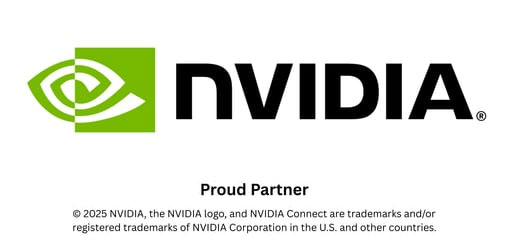The AI boom is no flash in the pan, it’s a tectonic shift in the business world. From boardrooms to factory floors, companies embracing AI aren’t just keeping pace; they’re setting the pace.
As someone immersed in European AI adoption, I’ve seen how early movers are already reaping benefits. But this isn’t just about shrewd tactics, it’s about playing the long game.
Here’s why, in my view, AI‑powered companies will dominate over the next ten years and how you can position your organisation to be one of them.
Execution Trumps Experimentation
Investing in AI is popular, 83% of companies now plan to integrate it into their core strategy pwc. But that enthusiasm doesn’t always translate into impact.
According to BCG, only 26% of companies have moved beyond pilots to actual value generation bcg. The key differentiator? Those who treat AI as a strategic core, not a buzzword, are already generating 1.5× more revenue and 1.6× higher shareholder returns bcg.
Simply put: those who build real pipelines for AI adoption will outperform.
AI Empowers Company‑Wide Transformation

It’s not just marketing or R&D getting smarter. Over 60% of AI value is now coming from core functions like operations, sales and R&D, not just support teams bcg.
Take the Commonwealth Bank of Australia, which has embedded over 2,000 AI models, processing 157 billion data decisions daily to power personalisation and decision-making across financial products theaustralian. Their move delivered elevated customer satisfaction and financial service evolution – it wasn’t a gimmick, but a transformation.
AIOps and Automation Drive Efficiency
Businesses are increasingly using AI to run their internal systems. Gartner notes that 50% of enterprises will implement AI orchestration platforms (AIOps) by 2025 advsyscon. These systems reduce downtime by up to 25% and free teams to focus on innovation rather than firefighting quinnox.
This shift is critical, when organisational brains are AI‑powered, so is company readiness.
A Window Already Closing
The window to gain a lasting competitive edge is narrow. Bain & Co highlight that delaying AI adoption risks being left behind investopedia. Early adopters – what PwC calls “AI leaders” – will shape markets, just as industrial leaders reshaped economies a century ago pwc.
When generative AI and analytics are feeding strategic decision-making, those businesses secure smarter, faster growth. Others play catch-up.
Access to Proprietary Data Becomes Strategic Moat
Not all AI is created equal. Those who marry AI with first‑party data – think customer behaviour, production metrics or IoT feeds – create custom models others can’t copy easily.
Take Accenture’s study, for example: Italian firms could add €50 billion by 2030 using AI, and an extra €30 billion by enhancing “Made‑in‑Italy” brand data reuters. That’s powerful proof of a unique data moat.
Scalable, Incremental Value is a Game‑Changer
The magic of AI isn’t always headline-grabbing innovation, it’s the cumulative impact:
Predictive analytics and cloud orchestration can cut unplanned downtime by 25% quinnox.
Supply chains, inventory, and pricing dynamically adjust in real-time, boosting margins and service.
Sales teams benefit from AI tools that prioritise leads, identify churn and suggest next steps hbr.
Little gains across dozens of departments compound to drive 20‑30% improvements in time-to-market, productivity and cost, mirroring PwC’s forecasts pwc.

Talent, Culture and C‑Suite Buy‑In Matter
Tech alone won’t transform a company. McKinsey found 92% of execs plan to increase AI investment, yet 46% cite talent gaps and 38% resource constraints mckinsey.
Transformational leaders like Australia’s Matt Comyn at CBA aren’t just deploying AI, they’ve shifted entire company culture, moving core workloads to cloud and embedding AI into every major function theaustralian.
Future‑Proofed & Responsible AI Will Win Trust
Regulations like the EU AI Act are imminent. Leaders that invest now in transparency, auditability and risk controls will benefit, while those building black‑box AI will face reputational and regulatory risk.
Ahead of the curve, entities like DeepMind have demonstrated that AI can deliver new algorithms – AlphaDev accelerating sorting by 70% wikipedia. Transparent breakthroughs build trust; hidden models won’t.
What You Can Do Now
Audit your current AI use – focus on strategic value vs pilots.
Embed AI across operations, not just in stand-alone pockets.
Invest in talent and culture, not just tools.
Build transparency and governance into every AI deployment.
Monetise your proprietary data in targeted, brand-relevant ways.
Final Thought
I’m convinced: The next decade will reward those who see AI as a strategic journey, not a novelty. It’s not just about being first, it’s about being built for AI. If you align your organisation’s data, culture and systems today, you won’t just survive – you’ll lead.
Victor A. Lausas
Chief Executive Officer
Subscribe to North Atlantic’s email newsletter and get your free copy of my eBook,
Artificial Intelligence Made Unlocked. 👉 https://www.northatlantic.fi/contact/
Discover Europe’s best free AI education platform, NORAI Connect, start learning AI or level up your skills with free AI courses and future-proof your AI knowledge. 👉 https://www.norai.fi/





